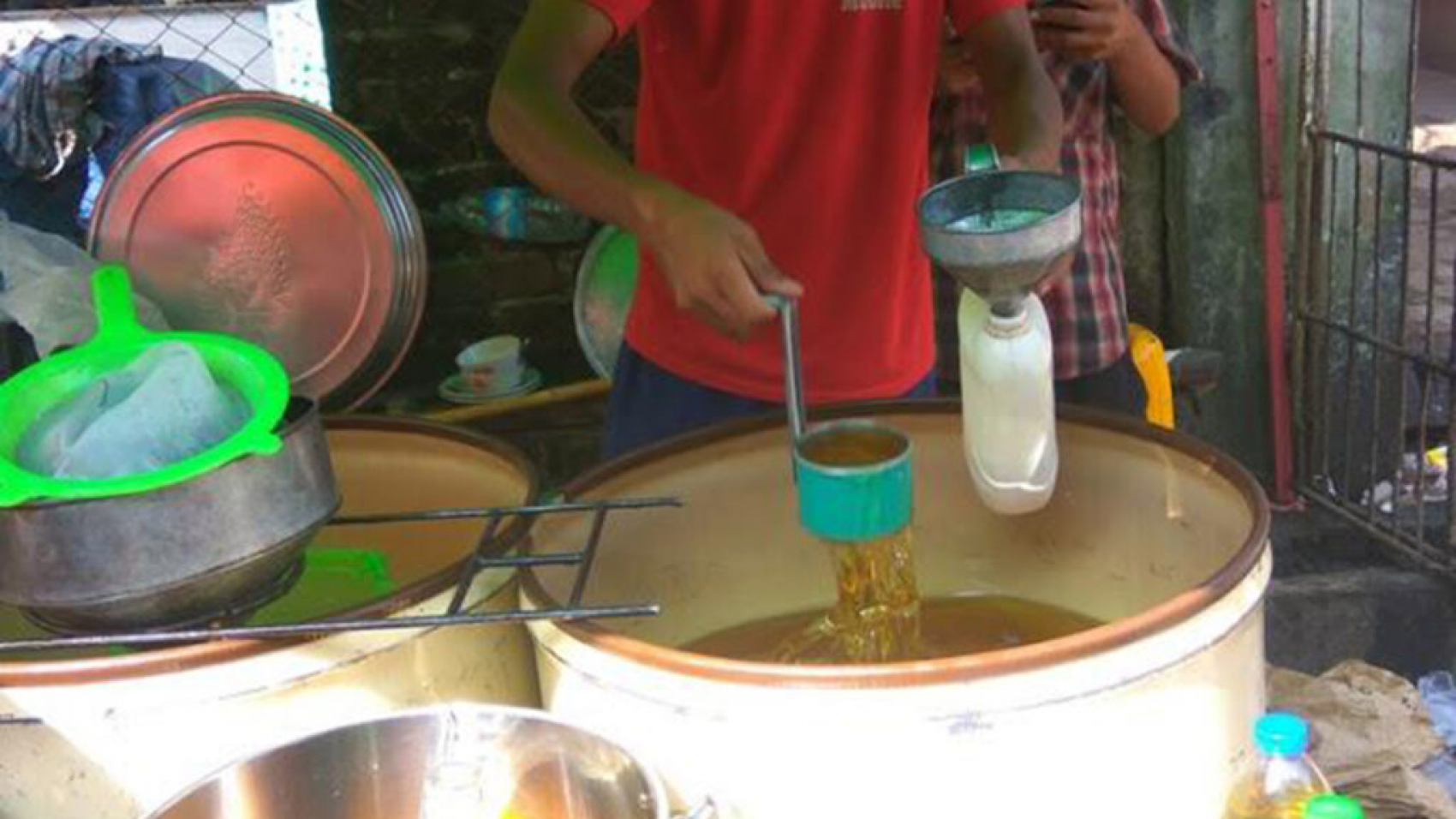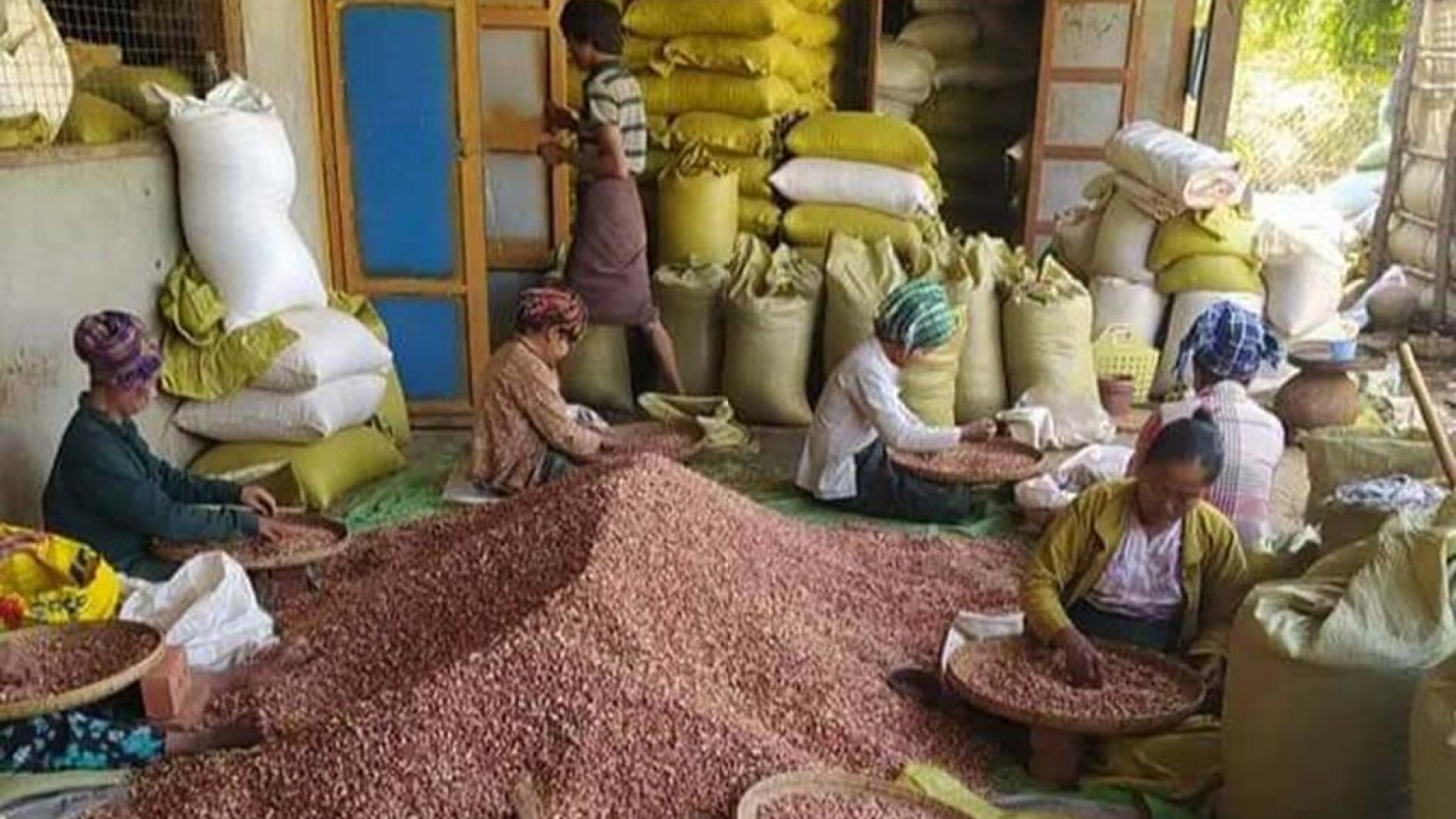The wholesale reference rate of palm oil in the Yangon market for this week ended on 7 August is set at K3,525 per viss (a viss equals 1.6 kilogrammes), according to the Supervisory Committee on edible oil import and distribution. The Supervisory Committee on edible oil import and distribution under the Ministry of Commerce has been closely observing the FOB prices in Malaysia and Indonesia including transport costs, tariffs and banking services and issuing the wholesale market reference rate for edible oil on a weekly basis.
The reference rate of palm oil in the Yangon market for a week from 25 to 31 July is set at K3,665 per viss. Therefore, the reference rate is down by K140 compared to last week’s rate. However, the market price is higher than the reference rate. Mobile market trucks operated by 11 companies, in coordination with Myanmar Edible Oil Dealers’ Association, were back to business in some townships starting from 17 July in order to offer palm oil at the subsidized rate of K3,800 per viss to the consumers. However, there are limited sources of supply although they directly sell the palm oil at a reference rate depending on the volume quota.
If those retailers and wholesalers are found overcharging, storing inventory intentionally and attempting unscrupulous action to manipulate the market, they will face legal action under the Special Goods Tax Law, MoC released a statement. The Ministry of Commerce is striving for the consumers not to worry over the supply of edible oil. The ministry is also trying to secure edible oil sufficiency, supervise the market to offer a reasonable price to the consumers, maintain price stability and prevent market manipulation. The domestic consumption of edible oil is estimated at 1 million tonnes per year. The local cooking oil production is just about 400,000 tonnes. To meet the oil sufficiency in the domestic market, about 700,000 tonnes of cooking oil are yearly imported from Malaysia and Indonesia.
Source: The Global New Light of Myanmar


